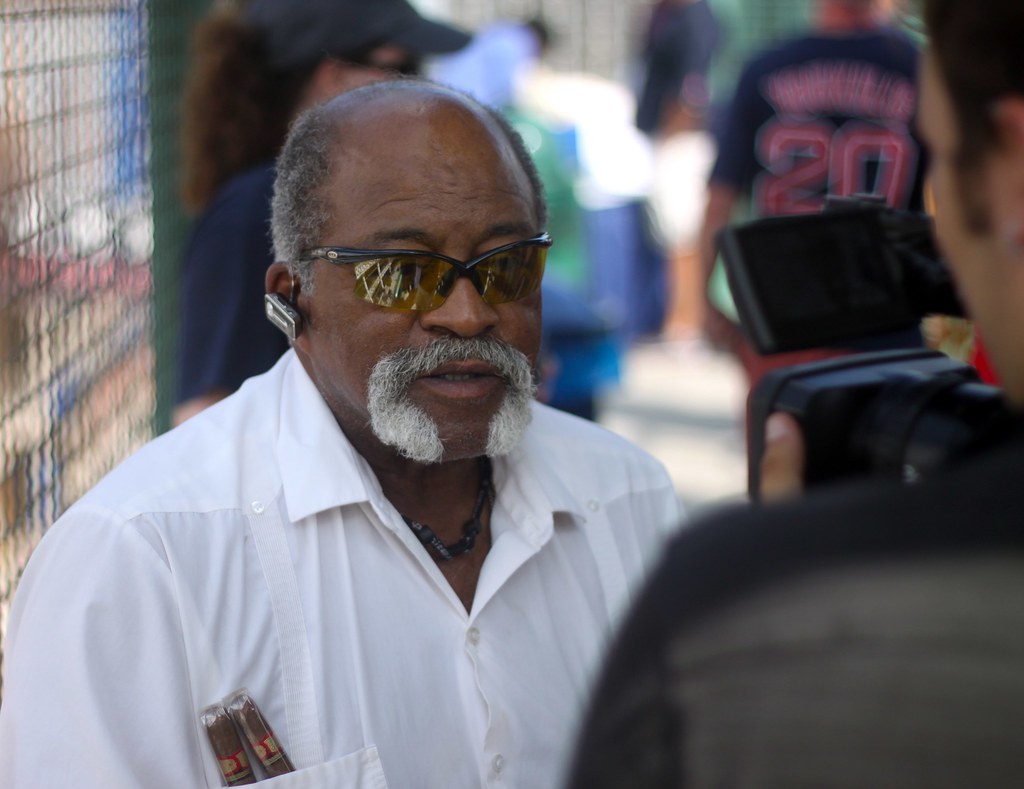Luis Tiant, known for his flamboyant pitching style and resilience, was one of the most recognizable and beloved pitchers in Major League Baseball during his career. Yet, despite his success and memorable contributions to the sport, Tiant has not been inducted into the Baseball Hall of Fame. This omission has sparked ongoing debate among baseball fans and experts alike. To understand why Tiant has not been enshrined in Cooperstown, it’s essential to examine his career achievements, the Hall of Fame voting process, and how these factors have played into his exclusion.
Luis Tiant’s Career Overview
Luis Tiant, a Cuban-born pitcher, enjoyed a 19-year career in the MLB from 1964 to 1982. He played for six teams, most notably the Cleveland Indians and Boston Red Sox, where he spent his most impactful years. His career stats are impressive and often compare favorably with other pitchers who are in the Hall of Fame:
- Career Wins: 229
- Career ERA (Earned Run Average): 3.30
- Strikeouts: 2,416
- Shutouts: 49
- Complete Games: 187
Tiant had three standout seasons in particular:
- 1968: He led the league in ERA with an extraordinary 1.60, also earning 21 wins.
- 1972 and 1974: In both seasons, Tiant won 20 games for the Red Sox, cementing his status as an ace.
He was also known for his eccentric, corkscrew-like delivery, which baffled hitters and made him a fan favorite. His tenacity and ability to reinvent himself as a pitcher after injuries early in his career demonstrated remarkable resilience.
Memorable Moments and Impact
Perhaps one of the most memorable moments of Tiant’s career came during the 1975 World Series, when he helped lead the Red Sox to the brink of a championship with two masterful complete-game victories against the Cincinnati Reds. His performance was one of the key reasons the series went to seven games, making him a cult hero in Boston.
Tiant’s impact goes beyond statistics; his persona and the love he garnered from fans made him an unforgettable figure in baseball. However, in the Hall of Fame’s rigorous selection process, memorable moments and charisma aren’t always enough to guarantee induction.
The Hall of Fame Voting Process
To understand why Luis Tiant isn’t in the Hall of Fame, it’s important to look at how players are elected. Players become eligible for the Hall of Fame five years after their retirement and are considered by the Baseball Writers’ Association of America (BBWAA) for up to 10 years (reduced from 15 in 2014). To be elected, a player needs to receive 75% of the votes from the BBWAA.
Unfortunately, Tiant never received strong enough support from the writers during his time on the ballot. In his first year of eligibility (1988), he only garnered 30.9% of the vote, and his numbers fluctuated in subsequent years but never came close to the required threshold. After falling off the ballot, he has had opportunities to be considered through the Veterans Committee, which examines players who may have been overlooked by the BBWAA, but even this route hasn’t worked in his favor.
Why Luis Tiant Has Been Overlooked
There are several reasons that could explain Tiant’s exclusion from the Hall of Fame despite his solid career:
1. Lack of Major Awards
One of the factors that Hall of Fame voters often consider is whether a player has won major awards, such as the Cy Young Award, which is given annually to the best pitcher in each league. Tiant never won a Cy Young, despite having a few seasons where he was in contention. While he was a three-time All-Star and placed in the top five in Cy Young voting twice, the absence of a major award may have diminished his case for the Hall of Fame in the eyes of voters.
2. Inconsistency and Injuries
While Tiant had several brilliant seasons, his career was marked by inconsistency, particularly early in his career and in the later stages. After his breakthrough in 1968, he struggled for several years due to injuries and ineffectiveness, including a particularly difficult 1969 season with a 9-20 record. Although he later rebounded and had several more strong seasons, his overall performance didn’t maintain the level of dominance that voters often expect from Hall of Famers.
3. Career Numbers Just Short of Benchmarks
Traditional benchmarks have often influenced Hall of Fame voting. For pitchers, numbers like 300 wins or 3,000 strikeouts have often been seen as key milestones. Tiant, with 229 wins and 2,416 strikeouts, falls short of those benchmarks. Even though those thresholds have become less critical over time, particularly with modern analytics, Tiant’s failure to reach those numbers likely played a role in the voters’ hesitance to induct him.
4. Era of Dominant Pitchers
Tiant’s career spanned an era that was filled with dominant pitchers, many of whom had career numbers that overshadowed his. Pitchers like Tom Seaver, Bob Gibson, Steve Carlton, and Jim Palmer—each of whom won Cy Young Awards and had legendary postseason performances—were contemporaries of Tiant. It’s possible that Tiant was simply overshadowed by the extraordinary talent around him during the peak of his career.
The Veterans Committee: A Possible Path to the Hall
Though Tiant has not been inducted by the BBWAA, he still has a potential path to the Hall of Fame via the Veterans Committee, which is now called the “Era Committee.” This committee is responsible for considering players, managers, umpires, and executives who might have been overlooked by the writers. The committee is divided into different eras, and Tiant has been on the ballot multiple times.
In 2022, Tiant was once again considered but did not receive enough votes for induction. However, the Era Committee tends to be more favorable to overlooked candidates than the BBWAA, and there remains hope among fans that Tiant’s contributions will eventually be recognized.
Conclusion: Why Isn’t Luis Tiant in the Hall of Fame?
The question of why Luis Tiant isn’t in the Hall of Fame is complex, with many contributing factors. His lack of major awards, inconsistency, and the presence of more dominant contemporaries likely played a role in his omission. However, his overall career statistics, his memorable moments, and his undeniable impact on the teams he played for make a compelling case for eventual induction.
The Hall of Fame, while primarily about statistical accomplishments, is also about a player’s contribution to the narrative of baseball. In this respect, Tiant has left an indelible mark. While his exclusion may continue to baffle fans, the hope remains that one day, through the Era Committee or another avenue, Luis Tiant will take his rightful place in Cooperstown alongside the legends of the game.



